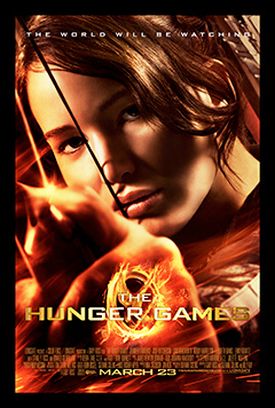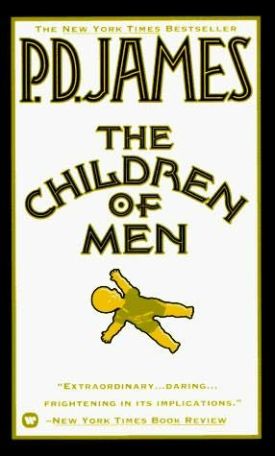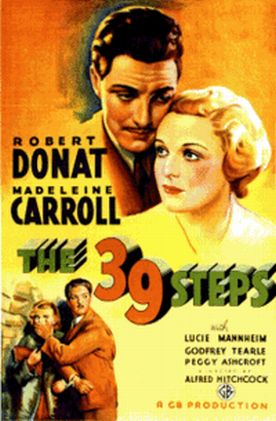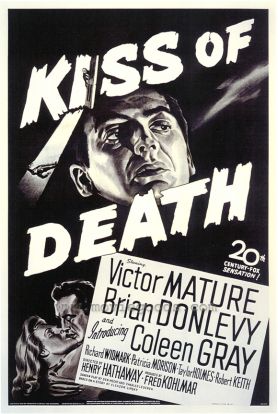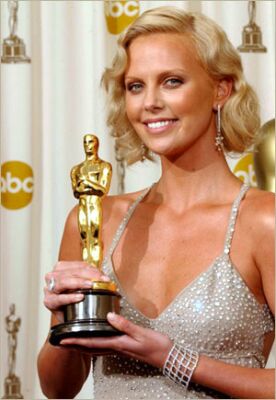Look Back in Hunger
The words “dystopia” and “dystopian” may be hard to get along without nowadays, but they are linguistic monstrosities, formed on the analogy of “utopia” and “utopian” but only by misconstruing those words’ Greek origins. The prefix “u-” is what grammarians call “privative” — meaning that it expresses a negation. Hence, “utopia” means “no place.” There is another Greek prefix transliterated as “eu-” which expresses in combinative forms the idea of “good” as in “euphemism”, “euphonious” or “eugenics” and which is the opposite of “dys-” or bad. As the English pronunciation of “utopia” is indistinguishable from that of “eutopia,” — a word which, if it still existed (its last recorded use in English was in 1638), would mean “good place” — people have got the idea that the former means what eutopia would mean and that, therefore, “dystopia” must be its opposite. It’s not. If utopia had an opposite it would be topia — but, as there is no need for such a word given that we have “some place,” it doesn’t.
There are those who defend “dystopia” on the reasonable enough ground that most people use the word utopia as if it were eutopia, but that is just what I object to. If you don’t grasp that the first and essential thing about utopia is that it doesn’t exist, then you are unlikely to have anything useful to say about it. “Good” and “bad” can only really be predicated of existing things, and the many soi-disant “dystopian” visions of a non-existent future — of which The Hunger Games is only the latest and greatest to get the Hollywood treatment — are quite as much defined by their non-existence as any hypothetical eutopian one would be, if there were any. For the name of the “dystopian” genre is useful to those who film in it, I think, primarily to imply the existence of the “eutopian” one when in fact the latter does not exist. That is to say, all cinematic utopias known to me are also dystopias, which makes the word not only redundant but misleading, as if eutopias were as possible for the movies as dystopias when evidently they are not.
The dystopian Hunger Games suggests the reason why. There are plenty of eutopias in prose fiction, but these are not suited to a hyper-realistic medium like the movies which naturally draw our attention to two things: the slick and slightly surreal surfaces of things at many times life size that thus call attention to their own fakery — I saw the movie in IMAX which emphasizes this aspect of them even more — and the presumably shocking and visceral realities that these superficially pleasing appearances are supposed to mask. That bias of the medium naturally fits together with the characteristic dystopian scenario, reproduced in The Hunger Games, of a tyrannical but horribly banal official culture organized as a police state ruthlessly to suppress the longings for freedom of those in the oppressed and unofficial culture, made up of people who live their lives on a more human scale. That scenario, in turn, meshes more or less precisely with the characteristically adolescent combination of idealism and paranoia which movies like this one are designed to exploit.
As politics, this kind of thing can be a useful caricature of genuinely totalitarian systems, as in the case of George Orwell’s Nineteen Eighty-four, but as visions of the future in a democracy like our own their limitations ought to be obvious, even apart from the limitations imposed on them by the essential triviality of fantasy. But the proliferation of movie dystopias, taken together with the absence of movie eutopias, also suggests a more subtle political purpose. Eutopia is as conspicuous an absence from our cinema as God or the American Dream and for the same reason: because we have grown culturally more fond of reproaching these things for not existing, or for existing only in caricature form, than we are of the things themselves, assuming they ever did exist — which the dystopian vision is usually doubtful about. That non-existence, then, creates a vacuum for left-wing utopianism to fill.
In other words, since utopia doesn’t exist, political movies must concentrate on portraying the world that does exist in extravagantly dystopian form in order to imply that some no-place in the form of a helpfully unelaborated utopia, can, will or even must exist as an alternative. If, like me, you resolutely cling to the irrevocable non-existence of utopia, the dystopian genre is likely to have few attractions for you. It’s just another way of not existing. Those who do respond to the charms of unreality, however, may particularly enjoy those fantasy worlds that are constructed so as to resemble some left-wing version of our own world, the world that we would fain call “real.” In Fantasyland (called Panem in The Hunger Games), for example, government authority is assumed to be malign and oppressive, periodically demanding human sacrifice from the oppressed as a form of entertainment for privileged élites who are meant to suggest — and doubtless do suggest to many of the movie’s multitudinous fans — the One Per Cent.
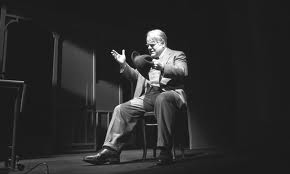 |
But fantasy, as I may have mentioned before, is a jealous mistress and must sooner or later deny its lovers any holiday in reality while shutting out anti-fantasists like myself from the cultural mainstream where it has lately become dominant. If reality doesn’t suit you, you must concoct your own reality and pretend that everybody else is mired in fantasy. This was the trick taught to the left 63 years ago by Arthur Miller in Death of a Salesman, now once again winning golden opinions from the lefty-literati in a Broadway revival by Mike Nichols starring Philip Seymour Hoffman. The play starts with a hyper-realistic, almost kitchen-sink realism about post-war middle-class life and flips it, showing that Willy Loman is badly out of touch with the intellectual’s version of reality — a fantasist about that absent American dream who doesn’t realize his own delusion. It’s a trick which still works as well as ever. Thus John Lahr of The New Yorker:
The revelation of this production — drawn out by Nichols’s seamless and limpid orchestration of Willy’s disconcerting flights of imagination (Miller’s original title for the play was “The Inside of His Head”) — is that Willy, for all his fervent dreams of the future and his fierce argument with the past, never, ever, occupies his present. Even as he fights, fumes, and flounders, he is sensationally absent from his life, a kind of living ghost. It is existence, not success, that eludes him. He inhabits a vast, restless, awful, and awesome isolation, which is both his folly and his tragedy. Willy is defined by the spirit of competition and by its corollary, invidious comparison. Envy is the gasoline on which American capitalism runs; it also runs Willy, driving him crazy.
Likewise, Charles Collingwood in The New York Times says that the “established classic” play
succeeded despite the contemporary complacency of postwar America — when it was attacked from forces on the right as ill-disguised Communist propaganda from a confirmed lefty — just as it will likely succeed in attracting audiences today who can relate to Willy’s struggle to maintain a foothold in the upward- striving American middle class.
In fact the complacency — and its twin, condescension — was and is all on the other side. Miller’s play was the cognitive elite looking down on the poor schlubs who actually had to produce something in the real-world economy from which, even then, the brainiacs had carved out an exemption for themselves. Once “intellectual” became a job description it was almost by definition elevated to a social vantage point from which Low-man Willie appeared to be a pathetic little insect, toiling away at illusory advancements on penury simply because he didn’t know any better. He, you see, was the fantasist, a victim of Marxist “false consciousness,” and so unaware that he was living in a world where the deck was stacked against him and “success” was nothing but a chimerical hope held out to him by propagandists of the capitalist system to keep him on his treadmill.
“Hope. It is the only thing stronger than fear,” says President Snow (Donald Sutherland) of The Hunger Games by way of explanation for the absurd killing game of the title. The whole scenario of that movie, as of Death of a Salesman, could only make sense to “a confirmed lefty,” but a lot of non-lefties of school age over the last sixty-odd years have learned from the latter how contemptible is most of the ordinary adult life and culture that they see around them in our commercial, “capitalist” democracy. The Hunger Games is just the latest indication that the kids have long since taken the message to heart — partly, I suspect, because it holds out to them the chimerical promise of a place, even if only an honorary one, among the “intellectuals” from which to condescend to the old folks. And the folks of old.
Discover more from James Bowman
Subscribe to get the latest posts to your email.

